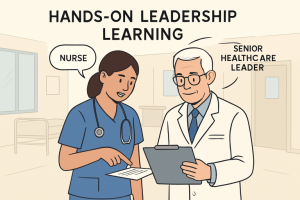The WHO reports that road traffic accidents are the leading cause of death among teenagers around the world. Many staple parental anxieties, like alcohol abuse and infectious illnesses, come much later in the tally. No wonder many impressionable teenagers may feel nervous about getting behind the wheel!
In Colorado, some dangerous trends like car surfing have emerged. Teenagers ride outside moving vehicles—a choice that has caused accidents and even claimed lives. In light of incidents like these, not every teenager will be enthusiastic to appear for their driver's license testing around their 16th birthday.
That said, driving is undoubtedly an essential life skill. We have some ideas you can try to change your child's perception toward driving and help them feel secure and confident.
1. Children Feel Reassured When We Acknowledge Their Fears
As adults, it can sometimes be challenging to relate to children's fears and dismiss them as unwarranted. Popular media often paints teenagers in an adrenaline-pumping light, making it even trickier to empathize with a more fearful kid.
However, if your teenager worries about getting into an accident or collision, their fears are entirely rational. Our roads are fraught with risks, from overspeeding vehicles to slippery stretches after heavy rainfall. Many drivers are distracted by their phones or drive under the influence.
The BBC reported last year that a teenager in Norwich caused a horrifying crash because he was driving with his knees—yes, really. It left a woman paralyzed, subjected to a lifetime of care and dependence. Disturbingly, many teenagers engage in such dangerous habits for social media fame or mere senselessness.
As parents, the best thing we can do is acknowledge and sympathize with any fears that trouble our kids. We cannot deny that driving has risks. But being careful and using technological solutions like emergency braking can keep us safe. It is worth seeking professional advice if you feel your child's fears are disproportionate.
2. Consult With a Patient and Experienced Driving Instructor
Learning from the experts can give children a significant confidence boost in life skills like driving or swimming. Professional instructors have the patience to answer questions and demonstrate things on repeat. They also don't judge children who may struggle to grasp a lesson. Everyone learns at a different pace.
If your teen shows hesitation to learn driving from you, putting them in a class is a good alternative. Look for an option that allows flexible scheduling so your child can manage it alongside other responsibilities, like academics and extracurriculars.
The American Driving Academy recommends starting classes early to let children have the time for comfortable and in-depth learning. For example, if your teen starts learning at 14.5 years, they will be well on their way to getting a license as a Sweet Sixteen gift.
3. Online Driving Classes and Simulations Can Be Less Stressful
Have you ever tried an online driving lesson? It can be fun and informative, taking you through the basics of driving minus the stress of actually being on the road. Online programs can help your teen grasp concepts like road signs and traffic rules from the comfort of their room.
You can find these classes on online portals like Udemy. Some courses even cover parking, reversing, and the psychology behind learning to drive.
Naturally, online classes are not the real thing. Ultimately, they must get in the driver's seat to get hands-on experience and practice the acquired learnings. Even so, an online program can give your child a head start and help them feel more confident about driving.
4. Focus on Defensive and Safe Driving Techniques
What can be better to soothe a nervous child's nerves than learning active ways to avoid danger? Defensive driving focuses not only on being safe yourself but also on steering clear of potential risks created by fellow drivers.
The UK-based RoSPA (Royal Society for the Prevention of Accidents) outlines how to stay defensive on the road by managing your speed and the space around your car. It mandates being aware of other people on the road. It also requires excellent communication and presence of mind, since others' mistakes might cause you harm.
Apart from defensive tactics, your teen can also find confidence from technological interventions for road safety. For example, consider installing systems for driver assistance and apps like Android Auto that let them be hands-free on the road. You cannot overstate the importance of always having necessary documentation, from identity cards to licenses and emergency contacts.
As parents, we go through our entire lifetimes in stages—the colicky baby, the demanding toddler, the opinionated teen. But these are stereotypes. Some of us may be fortunate enough to have sensitive teens who don't jump into danger headfirst.
Let us view our children's apprehension of driving as a genuine, well-placed concern. Eventually, with support and reassurance, they will learn to drive well and safely, much more crucial than a display of gravity-defying stunts!






